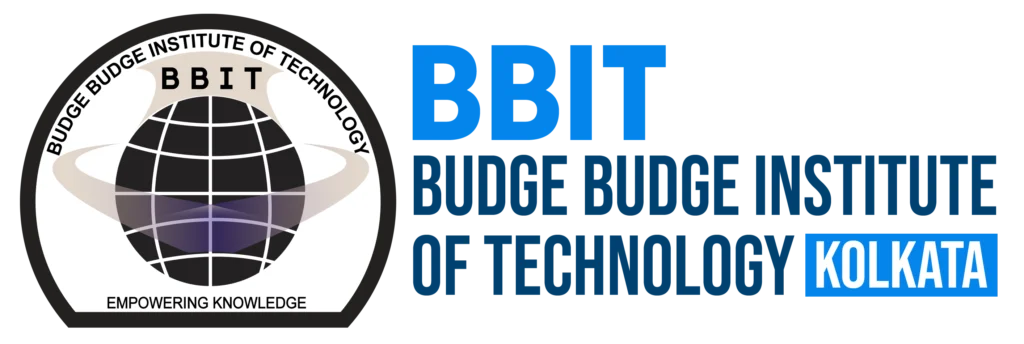Master of Business Administration (Marketing)
DURATION: 2 YEARS
Become Leaders of Tomorrow!
Our Master of Business Administration program spans two years (four semesters) and aims to equip you with a thorough comprehension of the business landscape, enabling you to flourish in a global marketplace. Benefit from the expertise of industry leaders, participate in real-world case studies, and apply theoretical knowledge through hands-on internships and projects. Connect with a vibrant community of students and establish invaluable networks with your peers, all within the online realm. Excel in your professional journey with our MBA program, featuring advanced learning and flexible modules tailored to your needs.

Program Outcomes (POs):
Integrative experience and experiential learning:
Formulate an integrative business project through the application of multidisciplinary knowledge.
Problem analysis:
Identify, formulate, review research literature, and analyze complex management problems, reaching substantiated conclusions using decisions based on creative thinking.
Design/development of solutions:
Design solutions for complex organizational problems and design system components or processes that meet specified needs with appropriate consideration for public health and safety, and cultural, societal, and environmental considerations.
Effect of global environment on business:
Employ effective cross-cultural communication and manage differing business practices and social conventions. Demonstrate awareness of international business activities and customs, and adapt to various global business environments.
Social, legal, and ethical responsibilities of organizations and society:
Analyze the impact of decisions on stakeholders, applying diversity frameworks and understanding global business contexts. Implement ethical principles and evaluate corporate social responsibility, considering economic, environmental, political, legal, and regulatory contexts.
Strategic and innovative thinking skills:
Develop novel products, processes, or organizational forms by identifying and solving problems using qualitative and quantitative methods. Assess environments and opportunities, and align business activities to implement strategic changes in complex and uncertain conditions.
Effective oral, written, and presentation communication skills:
Prepare logical and relevant arguments and demonstrate professional interaction and communication skills through effective oral and written presentations.
Ethics:
Apply ethical principles and commit to professional ethics, responsibilities, and norms of business practice.
Individual and team work:
Function effectively as an individual, and as a member or leader in diverse teams and multidisciplinary settings.
Communication:
Communicate effectively on complex business activities with the business community and society at large, including writing effective reports, making presentations, and giving clear instructions.
Functional business knowledge:
Analyse and apply accounting information for strategic decision-making. To manage firm growth through financial decision models and strategies like mergers, acquisitions, and new venture development.
Life-long learning:
Recognize the need for, and have the preparation and ability to engage in independent and life-long learning through delivering an appropriate skill set.
Program Educational Objectives (PEOs) of MBA Department:
Domain Knowledge:
To equip postgraduates in MBA with fundamental concepts of core domain subjects like marketing, finance, and human resource management, along with technical competency to work effectively in various managerial domains.
Communication:
The students would receive thorough exposure on how to groom themselves to become industry-ready and effective techniques on how to meet and greet industry professionals for interviews.
Projects and Case-Based Learning:
To provide practical exposure by working with real-time cases and facilitate regular industrial training and industry visits to meet the basic requirements of the management process.
Research and Development:
To encourage management graduates to undertake various research and development work and benefit society in turn.
Global Perspective:
To conduct an analysis of the political, economic, social, technological, legal, and environmental factors relevant to strategic decision-making for a global organization. Also, to evaluate and develop recommendations regarding corporate business strategy for an international market.
Leadership and Interpersonal Skills:
To demonstrate effective leadership and interpersonal skills in a team environment. Recommend actions that improve organizational effectiveness.
Program Specific Objectives (PSOs):

Critically analyze complex power system scenarios and propose solutions using acquired theoretical and practical knowledge.

Work on defined projects by interpreting power system data to provide real-time solutions to system issues

Identify optimal solutions to enhance power transfer capability, improve power quality, and ensure reliability.
This program is ideal for individuals passionate about manufacturing and designing power systems, who possess strong problem-solving abilities and a desire to pursue rewarding careers in electrical system design, development, and maintenance, ensuring quality, safety, reliability, and sustainability.
Program Specific Outcomes (PSOs) of MBA Department:
Core Courses:
Application of multidisciplinary knowledge comprising finance, operations, systems, marketing, and human resources management to integrate business projects.
Optional Elective Courses:
Usage of business metrics to evaluate business projects and develop growth strategies.
Workshops & Seminars:
Empower students to innovate and execute business ideas during challenging business situations.
Potential Job Roles
Marketing Managers:
Develop and implement marketing strategies to drive brand awareness, customer acquisition, and revenue growth.
Sales Managers:
Oversee sales teams, set sales targets, and devise strategies to achieve sales goals while managing client relationships.
Advertising Professionals:
Create and manage advertising campaigns to promote products or services, enhancing brand visibility and engagement.
Marketing Analysts:
Analyze market trends, customer behavior, and campaign performance to provide insights and recommendations for marketing strategies.
Product Managers:
Oversee the development and lifecycle of products, from concept to launch, ensuring alignment with market needs and business objectives.
Program Overview & Structure
Theory:
- Management Processes & Organizational Behavior
- Managerial Communication- I
- Financial Reporting & Analysis
- Governance, Ethics & Sustainability
- Introduction To Hospital Healthcare Management
- Marketing Management
- Economic Analysis For Business Decision
Quantitative Techniques For Business Decision
- Information Technology For Managers
- Rbl-1 (Compulsory Audit Course)
Theory:
- Human Resource Management
- International Business/ Management of Supportive Services
- Corporate Finance
- Business Research Methods
- Production and Operations Management/ Management of Clinical Services
- Introduction to Business Analytics
- Entrepreneurship and Startup- Ideation
- Legal Aspects of Business/ Legal Aspects of Healthcare
- Managerial Communication- II
- RBL-2 (Compulsory Audit Course)
- Community Connect
Theory:
- Strategic Management
- DISCIPLINE SPECIFIC COURSE-1
- DISCIPLINE SPECIFIC COURSE-2
- DISCIPLINE SPECIFIC COURSE-3
- DISCIPLINE SPECIFIC COURSE-4
- DISCIPLINE SPECIFIC COURSE-5
- DISCIPLINE SPECIFIC COURSE-6
Practical:
- PRBL-3 (Dissertation 1)
- Summer Training Report & Presentation
- Industry Readiness
Theory:
- DISCIPLINE SPECIFIC COURSE-7
- DISCIPLINE SPECIFIC COURSE-8
- DISCIPLINE SPECIFIC COURSE-9
- DISCIPLINE SPECIFIC COURSE-10
- DISCIPLINE SPECIFIC COURSE-11
- DISCIPLINE SPECIFIC COURSE-12
Practical:
- RBL-4 (Dissertation 2)
Eligibility Criteria
Graduation: A bachelor's degree with a minimum of 50% marks from a recognized university.
English Communication: Proficiency in English communication is required.
Entrance Exams: One of the following:
-SUAT: Successful completion of the SUAT (Online Test).
- MAT: A score in the 75th percentile or above.
- CAT/XAT: A score in the 65th percentile or above, followed by a Group Discussion and Personal Interview.
Fees Structure
24 Months EMI
₹4,583*
Interest free
Per Semester Fee
₹27,500*
Full Program Fee
₹1,65,000
Meet our Top Rank Faculties

Prof. (Dr.) Moumita Poddar
Professor & Dean, MBA, Ph.D, Marketing

Prof. (Dr.) Prabal Chakraborty
Associate Professor, Ph.D, Marketing
Upraise your Career Now with BBIT's M.Tech Program.


Vision
To develop the MBA Department into a progressive center of management education that imparts quality learning and provides sustainable solutions to contemporary business and societal challenges.

Mission
To equip students with fundamental management concepts and skills through application-based, innovative pedagogy. We aim to create an environment of academic excellence, research, and innovation that benefits students, faculty, and external stakeholders. Our mission includes developing intellectual capital that is both scholarly and practice-oriented to meet the needs of the evolving socio-economic environment. We are committed to providing transformational learning experiences that foster responsible, ethical thought leaders, and to building strong relationships with employers to bridge the skill gap between industry and academia.

